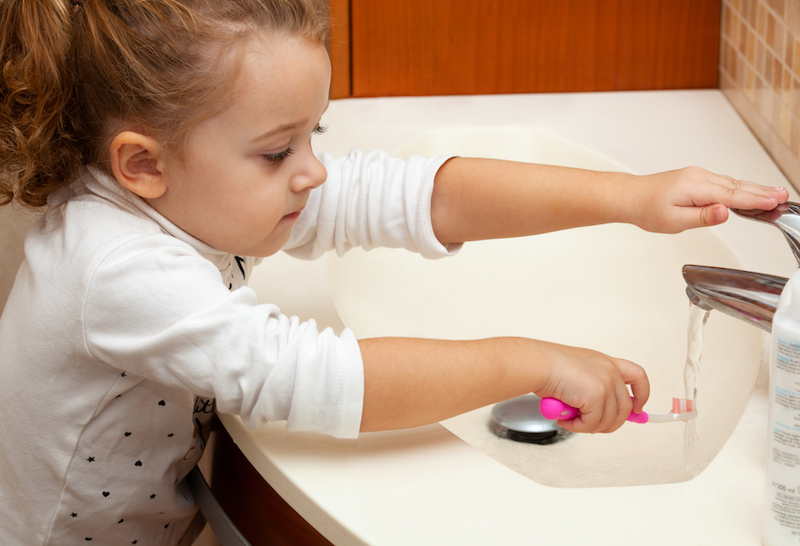Fluoride Treatments

Although there are many ways we fight against tooth decay, both at home and in the office, sometimes your child’s teeth benefit from a little extra help. Fluoride is a naturally-occurring mineral that has been shown to prevent cavities by strengthening tooth enamel. It is added to tap water in many communities (including Collier County), and is also added to many oral hygiene products.
If your child is cavity-prone, they may benefit from fluoride varnish. This is applied to the teeth as an added layer of protection against decay.
How Fluoride Treatments Work
Fluoride treatments are quick and completely painless. At the end of your child’s dental exam, Dr. Hester will brush a thin layer of fluoride gel onto your child’s teeth. This will set quickly and the process will be complete. Your child will need to avoid eating or drinking for a short period afterwards so that the varnish has hardened – usually no more than 30 minutes.
As oral bacteria feed on sugars from food and drinks, they create acids that erode the teeth. Fluoride makes natural enamel more resistant to these harmful acids. It both protects against future decay and remineralizes worn enamel, sometimes reversing small cavities entirely.
According to the CDC, fluoride can prevent about 1/3 of cavities in baby teeth.
Ways Your Child Can Receive Fluoride
- Tap water
- Fluoridated toothpaste and/or mouthwash
- Supplements recommended by your dentist
A combination of tap water and fluoridated toothpaste is the most effective against decay. If you’re concerned that your child isn’t getting enough fluoride (particularly if they don’t drink tap water), a supplement may be helpful.
While you should be using fluoride toothpaste for your child’s brushing, monitor them to be sure that they’re spitting out their toothpaste rather than swallowing it, and only use a pea-sized amount.
Fluoride FAQ
Is fluoride safe for my child?
Fluoride is completely safe at appropriate levels. It is difficult for your child to get too much fluoride unless they are swallowing toothpaste or taking a supplement that was not recommended by their dentist. You should watch your child’s brushing to make sure they’re not swallowing their toothpaste, and keep fluoride products out of reach.
The most common side effect associated with excess fluoride is fluorosis, white spots on the enamel that form during tooth development (before age 6). Talk to Dr. Hester if you ever have concerns about fluoride and your child’s teeth.
Is my child getting enough fluoride?
Dr. Hester will examine your child’s teeth and let you know whether he recommends a change in their habits. If your child or household only drinks bottled/distilled water, a fluoride supplement may be beneficial but should only be added at a dentist’s or pediatrician’s recommendation.
Would my child benefit from fluoride treatments?
If your child frequently develops cavities, fluoride treatments could be an affordable, comfortable way to help prevent them in the future. Sealants are also helpful for cavity-prone teeth. Dr. Hester will tell you more about your options at your child’s next exam.